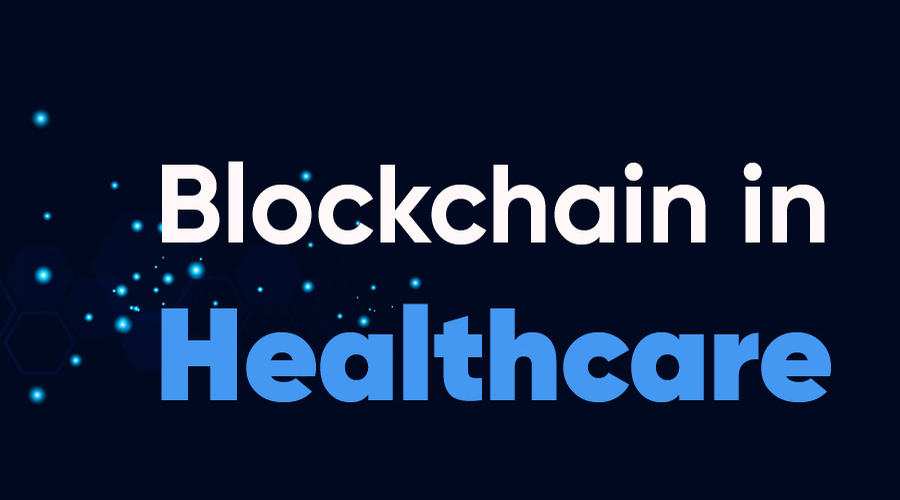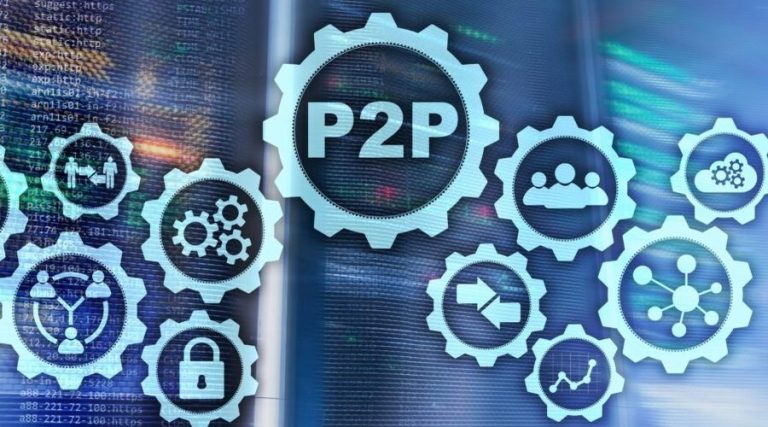
Blockchain, in the context of healthcare, refers to a decentralized digital ledger that records and stores transactions and interactions between healthcare providers, patients, and other stakeholders. It provides a secure and transparent platform for sharing and managing health-related data, such as medical records, clinical trials, and insurance claims. The immutability and traceability of blockchain make it an attractive solution for overcoming the challenges faced by traditional healthcare systems.
The importance of blockchain technology in healthcare cannot be understated. It has the potential to address critical issues such as data security, interoperability, and administrative inefficiencies. However, for blockchain to reach its full potential in the healthcare sector, several regulatory challenges need to be overcome.
Regulatory Challenges for Blockchain in Healthcare
Lack of Standardized Regulations
One of the primary challenges facing the adoption of blockchain in healthcare is the absence of standardized regulations. The technology is still in its nascent stages, and regulatory bodies are struggling to keep up with its rapid development. The lack of clear guidelines and frameworks creates uncertainty for healthcare organizations and inhibits the widespread adoption of blockchain.
Data Privacy and Security Concerns
Data privacy and security are major concerns in the healthcare industry. With the digitization of medical records and the increasing number of data breaches, protecting sensitive patient information has become paramount. While blockchain offers enhanced security through encryption and decentralized storage, there are still concerns regarding data privacy and compliance with regulations like the Health Insurance Portability and Accountability Act (HIPAA).
Interoperability Issues
Interoperability is a significant challenge in healthcare, with various systems and databases using different formats and standards. Blockchain has the potential to address this issue by providing a common platform for data sharing and interoperability. However, achieving seamless integration between existing healthcare systems and blockchain technology poses technical and regulatory challenges.
Regulatory Compliance and Governance
The healthcare industry is heavily regulated to ensure patient safety and data integrity. Integrating blockchain into existing regulatory frameworks is a complex task that requires collaboration between regulators, healthcare providers, and technology developers. Determining the legal status of blockchain transactions, establishing liability, and ensuring compliance with existing regulations are critical challenges that need to be addressed.
Ethical Considerations
Blockchain technology raises ethical considerations, particularly in terms of data ownership, consent, and transparency. Healthcare organizations must navigate these ethical challenges to ensure that patient rights and autonomy are respected when implementing blockchain solutions. Additionally, addressing the potential biases and discrimination that can arise from data stored on the blockchain is crucial.
Opportunities for Blockchain in Healthcare
Despite the regulatory challenges, blockchain presents significant opportunities for the healthcare industry. By leveraging blockchain technology, healthcare systems can benefit from:
Enhanced Data Security and Integrity

Blockchain’s decentralized and tamper-proof nature enhances data security and integrity. Medical records, clinical trials, and other health-related data stored on the blockchain are protected from unauthorized access and tampering. This ensures the accuracy and trustworthiness of healthcare data, which is crucial for patient care and research.
Improved Interoperability and Data Sharing
Blockchain can facilitate seamless data sharing and interoperability between healthcare providers, researchers, and patients. By providing a standardized platform for data exchange, blockchain enables secure and efficient sharing of patient information, leading to better care coordination and improved health outcomes.
Streamlined Administrative Processes
Administrative processes in healthcare, such as insurance claims and billing, can be time-consuming and prone to errors. Blockchain technology can streamline these processes by automating data verification and reducing paperwork. This efficiency improvement saves time and resources, allowing healthcare professionals to focus on patient care.
Efficient Supply Chain Management
Supply chain management is crucial in the healthcare industry, ensuring the availability of medications, medical devices, and other essential supplies. Blockchain can optimize supply chain processes by providing real-time tracking, transparency, and traceability of goods. This helps prevent counterfeiting, reduces the risk of expired or counterfeit drugs, and ensures the safety and quality of healthcare products.
Enhanced Research and Development
Blockchain has the potential to revolutionize research and development in healthcare. By providing a secure and transparent platform for sharing clinical trial data, researchers can collaborate more effectively, leading to accelerated discoveries and advancements in medical treatments. Blockchain also enables patients to have control over their data, allowing them to contribute to medical research while maintaining privacy.
Overcoming Regulatory Challenges
- Collaboration between Regulators and Industry Stakeholders: Close collaboration and engagement between regulatory bodies, healthcare organizations, technology developers, and legal experts is crucial. By working together, they can gain a comprehensive understanding of blockchain technology and its potential impact on healthcare. This collaboration allows for the development of well-informed regulations and guidelines that strike a balance between innovation and compliance.
- Standardized Regulations and Guidelines: Regulatory bodies need to develop standardized regulations and guidelines specifically tailored to blockchain in healthcare. These regulations should encompass areas such as data privacy, security, interoperability, and governance. Standardization ensures clarity and consistency, making it easier for healthcare organizations to navigate the regulatory landscape and adopt blockchain solutions.
- Addressing Data Privacy and Security Concerns: Data privacy and security are critical considerations in healthcare. Regulatory bodies should establish frameworks that ensure compliance with existing privacy regulations, such as HIPAA (Health Insurance Portability and Accountability Act). Encryption techniques, robust access controls, and user consent mechanisms can help protect patient data while leveraging the benefits of blockchain technology. It’s essential to strike a balance between transparency and privacy.
- Interoperability Standards: Interoperability is essential for the successful integration of blockchain in healthcare. Regulatory bodies can play a pivotal role in establishing interoperability standards that enable seamless data exchange between different blockchain platforms and existing healthcare systems. These standards should focus on data formats, encryption methods, and data access protocols, ensuring smooth interoperability and data continuity.
- Regulatory Sandboxes: Regulatory sandboxes provide a controlled environment for testing innovative solutions while offering regulatory flexibility. By creating sandboxes specific to blockchain in healthcare, regulators can foster innovation, gather valuable insights, and refine regulations based on real-world use cases. Sandboxes allow for experimentation and collaboration, enabling regulators to strike a balance between safeguarding public interests and promoting technological advancements.
Case Studies: Successful Implementation of Blockchain in Healthcare
To illustrate the potential of blockchain in healthcare, let’s explore a few case studies:
Example 1: Electronic Health Records (EHR) on the Blockchain
Several blockchain projects aim to improve the security and accessibility of electronic health records. By storing EHRs on the blockchain, patients can have control over their medical data, granting access to healthcare providers on a need-to-know basis. This empowers patients and streamlines the exchange of information between different healthcare providers, resulting in better care coordination.
Example 2: Drug Supply Chain Management
Blockchain can address the challenges of drug supply chain management, including counterfeit medications and lack of transparency. By recording each step of the supply chain on the blockchain, from manufacturing to distribution, stakeholders can verify the authenticity and integrity of medications. This ensures patient safety and reduces the risk of counterfeit drugs entering the market.
Example 3: Clinical Trial Data Sharing
Blockchain enables secure and transparent sharing of clinical trial data among researchers, pharmaceutical companies, and regulatory authorities. By recording trial data on the blockchain, stakeholders can ensure the integrity of the data and streamline the approval process. This promotes collaboration and accelerates the development of new treatments and therapies.
Future Outlook
The future of blockchain in healthcare is promising. As the technology continues to mature and regulatory frameworks evolve, we can expect several advancements:
- Potential Advancements in Blockchain Technology: Blockchain technology is still evolving, and future advancements are likely to enhance its capabilities in healthcare. These advancements may include improved scalability, faster transaction processing, and increased privacy features. The development of smart contracts and decentralized applications tailored to healthcare will further expand the possibilities of blockchain technology.
- Integration with Other Emerging Technologies: Blockchain has the potential to synergize with other emerging technologies, such as artificial intelligence (AI) and the Internet of Things (IoT). Integrating blockchain with AI can facilitate secure and privacy-preserving analysis of healthcare data, leading to personalized treatments and better disease prediction. IoT devices can leverage blockchain’s security and interoperability features to create a secure ecosystem for healthcare data exchange.
- Role of Governments and Regulatory Bodies: Governments and regulatory bodies play a crucial role in shaping the future of blockchain in healthcare. By providing clear regulations, supporting research and development, and fostering collaboration between stakeholders, they can create an environment that encourages innovation while protecting patient rights and public health.
Conclusion
Blockchain technology holds immense potential for transforming the healthcare industry. While regulatory challenges exist, addressing these challenges is essential to unlock the benefits of blockchain in healthcare. By collaborating with industry stakeholders, developing standardized regulations, and prioritizing data privacy and security, we can pave the way for a future where blockchain revolutionizes healthcare systems, improves patient care, and accelerates medical advancements.
FAQs
What is the role of blockchain in healthcare?
Blockchain in healthcare provides a secure and transparent platform for sharing and managing health-related data, enhancing data security, interoperability, and administrative efficiency.
How can blockchain address data privacy concerns in the healthcare industry?
Blockchain ensures data privacy by encrypting and decentralizing healthcare data, granting patients control over their information and allowing secure sharing on a need-to-know basis.
Are there any successful examples of blockchain implementation in healthcare?
Yes, there are successful examples such as storing electronic health records on the blockchain, improving drug supply chain management, and facilitating secure clinical trial data sharing.
What are the potential risks associated with blockchain in healthcare?
Risks include data privacy and security concerns, regulatory compliance challenges, ethical considerations, and interoperability issues between existing systems and blockchain platforms.
How can regulatory bodies promote the adoption of blockchain technology in healthcare?
Regulatory bodies can promote adoption by developing standardized regulations, addressing data privacy concerns, establishing interoperability standards, and promoting awareness and education about blockchain in healthcare.
I have been writing about cryptocurrencies for over two years and I’m widely considered one of the most knowledgeable and respected authors in the space. I have a deep understanding of the underlying technology and market dynamics, and my insights have helped countless investors make informed decisions about their portfolios. I’m a speaker and commentator, and my work has been featured in major publications such as CoinDesk, Forbes, and The Wall Street Journal. I also run a popular cryptocurrency trading signals service that has helped thousands of people make money in the volatile but potentially lucrative world of digital assets.


